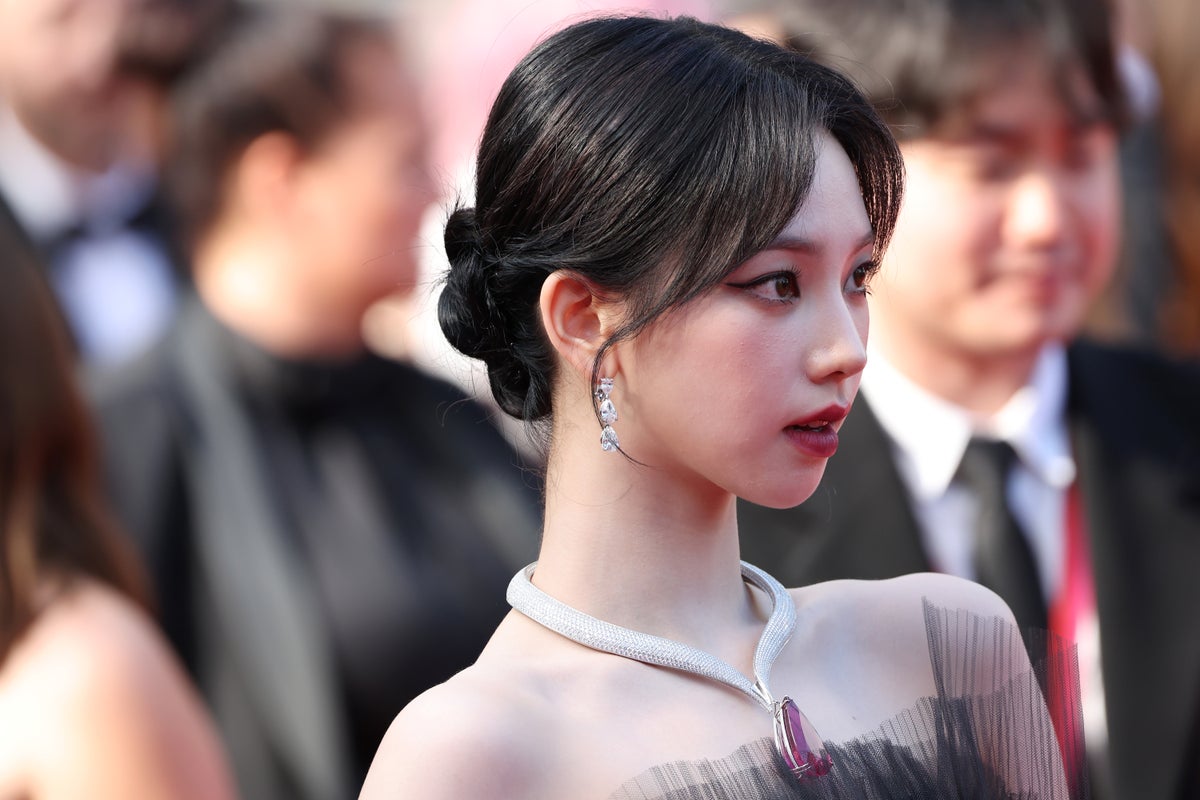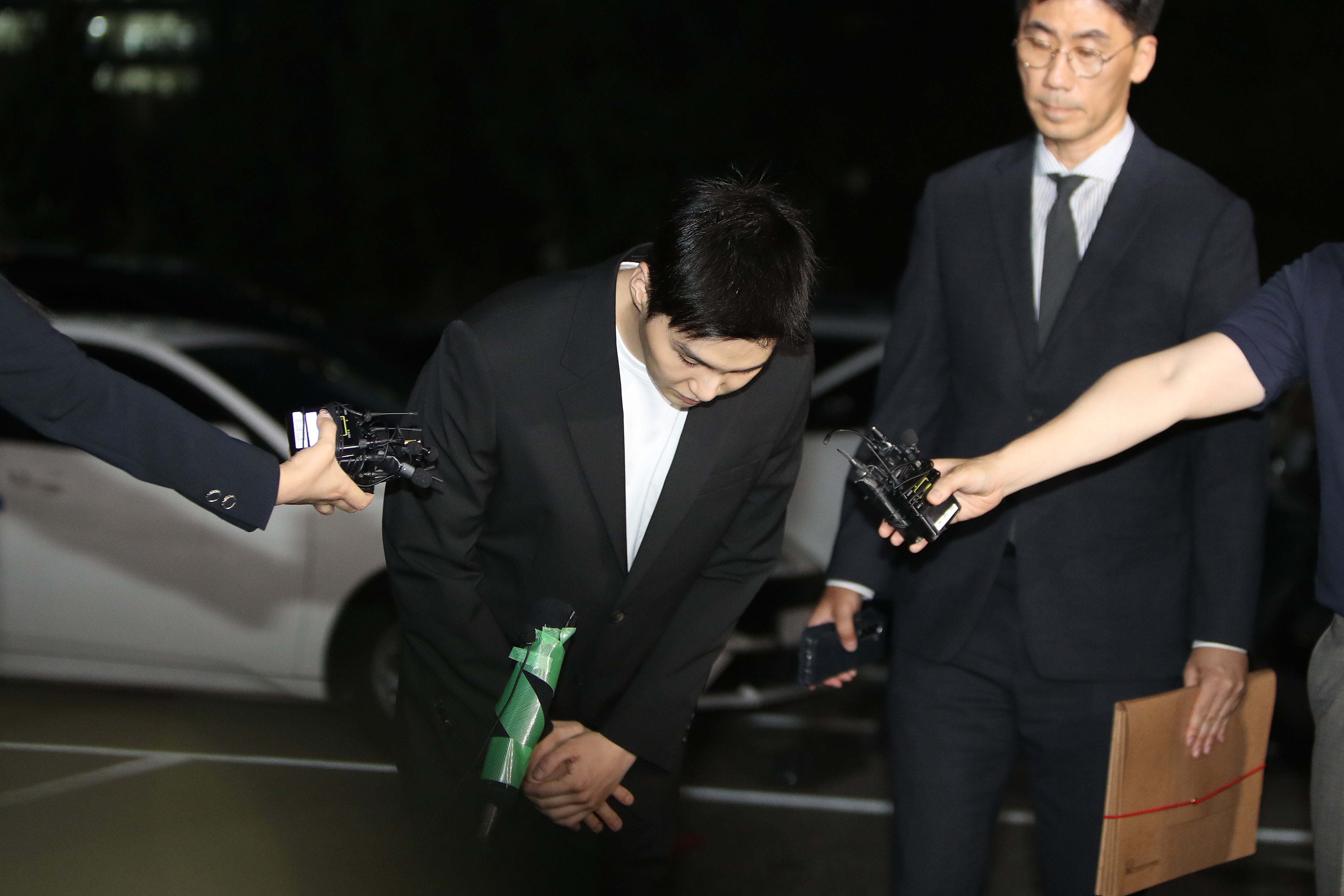
Karina, a member of the popular K-pop girl group aespa, found herself in the eye of a storm after a picture of her outfit sparked accusations of political endorsement and breaching one of Korean entertainment’s unwritten rules: complete neutrality.
On Wednesday, Karina posted an Instagram photo of herself dressed in a red-and-black jacket with the number 2 on it. Many people interpreted it as a subtle nod to Kim Moon Soo, candidate of the conservative People Power Party in South Korea’s 3 June presidential election, whose campaign branding uses red and the ballot number 2.
She deleted the post as soon as the comments started coming in and issued an apology on fan subscription platform Bubble. “I’m sorry for making you worry. That was never my intention,” she said. “I will be more mindful and cautious with my actions going forward. Once again, I’m sorry for causing concern.”
Her agency, SM Entertainment, released a statement reinforcing her neutrality and calling her outfit “everyday content” that was taken down once they realised the potential for misinterpretation.
What looks like an overreaction to an otherwise innocuous image is quite emblematic of the intense cultural pressure placed on South Korean celebrities, especially K-pop idols, to practise near-total political abstinence.
The expectations are so high that idols often avoid colours, numbers or gestures that could be misread, no matter how coincidental the context.
This level of hyper-vigilance stems from the deeply embedded expectation that K-pop idols function as cultural blank slates; figures onto whom fans can project ideals, rather than individuals with opinions or personal leanings.
In such an environment, even the faintest suggestion of partisanship or socially loaded behaviour can and does trigger major criticism.
The latest wave of scrutiny arrived against the backdrop of a tumultuous election. South Koreans are heading to the polls on 3 June, in a snap presidential election triggered by the impeachment of president Yoon Suk Yeol in April. Yoon was removed from office after controversially invoking martial law in December 2024, a decision that led to nationwide protests and his eventual downfall in the National Assembly. The leading candidate is Lee Jae Myung of the liberal Democratic Party whose campaign has focused on economic equity and foreign policy reform.
Lily got so panicked when she made a certain number sign with her hand because it's election season in Korea right now 😭 pic.twitter.com/Tg57cqJy8N
— nmixx pics (@nmixxpics_) May 28, 2025
Around election season, K-pop idols are warned against wearing colours associated with the major political parties: red for the People Power Party, blue for Democratic Party, yellow and green for the Green Justice Party, and so on.
Even benign hand gestures like the peace sign or a thumbs up, when done near polling places or shared online, are discouraged because they can mimic party or candidate ballot numbers.
Failure to follow these unwritten rules often results in immediate backlash. In 2018, entertainer Yoo Jae Suk faced criticism for wearing a blue cap during the 2018 regional election, and in 2020 trot singer Song Ga In had to apologise for wearing a blue shirt in a video made by the National Election Commission to encourage voting.

This level of scrutiny of Korean celebrities is not limited to politics but extends to historical sensitivities and even personal lives.
BTS’s Suga faced fan outrage and protest wreaths after being fined for drunk-driving an electric scooter, an act that was treated by some fans as grounds for expulsion from the group.
Similarly, Karina was accused of “betrayal” by fans and forced to issue an apology last year after they found out she was dating actor Lee Jae Wook.
Idols have also issued apologies for travelling to Japan, which has a fraught history with Korea, during sensitive national holidays and for making what fans have considered insensitive comments related to Korean history.
However, some idols seem to have figured out a way to bypass these arbitrary rules. ZeroBaseOne’s Kim Tae Rae addressed election season etiquette in a post on a fan platform where he could be seen flashing a ‘V’ sign, which can be interpreted as a reference to Kim Moon Soo.
To avoid any issues, Kim joked that he was balancing out any speculation with the colour of his phone – blue.
South Koreans turn out in huge numbers for early voting after political crisis
Lee Jae Myung: Can the man tipped to be next leader bring stability to South Korea?
All on board dead after South Korea navy plane crashes near base
Polls show clear favourite in race to become South Korea’s next president
North Korea says Trump’s Golden Dome risks ‘outer space nuclear war’
Embarrassed North Korea detains officials over botched launch of naval destroyer







